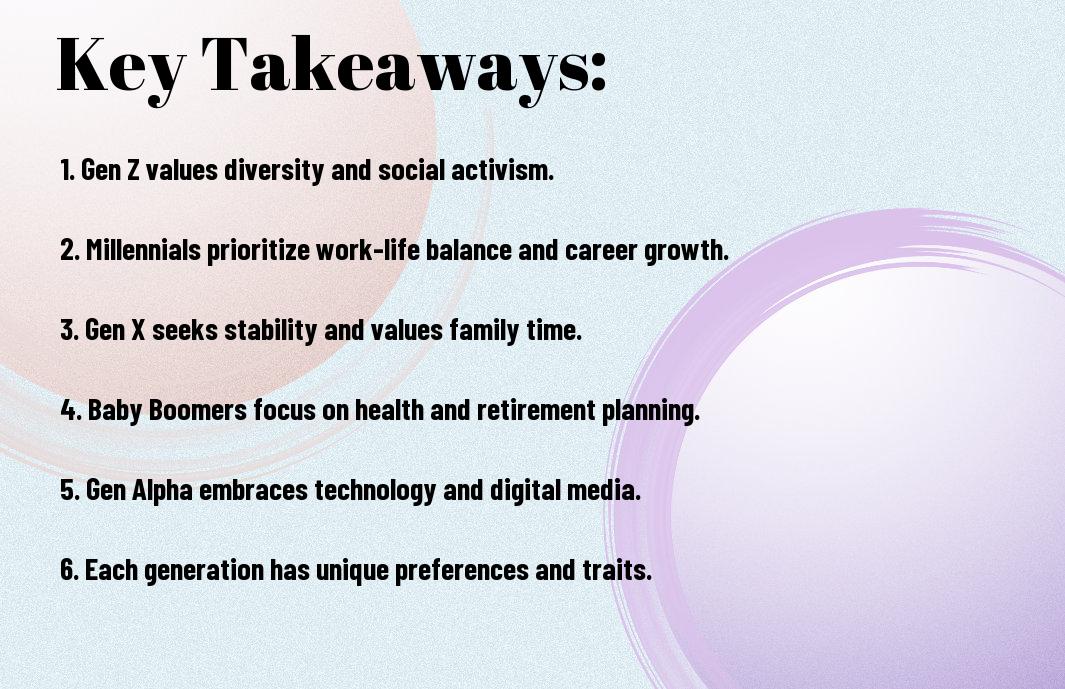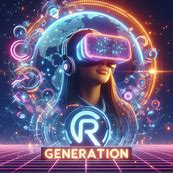It’s important to probe into the social generations of 2025 and beyond to understand the future landscape of society. With technology evolving at a rapid pace, communication channels changing, and global events shaping attitudes, it’s crucial to grasp the characteristics and behaviors of these upcoming generations. By exploring their values, preferences, and influence on the world, we can prepare for the significant shifts they will bring about in various aspects of life. Join us as we provide a comprehensive overview of the social generations set to dominate the scene in the years to come.

Defining the Social Generations of 2025
One of the key aspects in understanding the characteristics of different social generations is defining the specific parameters that distinguish one generation from another. In the context of 2025, where the social landscape is continuously evolving, it is imperative to establish clear criteria for generational segmentation. By doing so, we can gain valuable insights into the unique behaviors, values, and preferences of each generation.
Criteria for Generational Segmentation
The criteria for generational segmentation often include defining age ranges, significant historical events that shaped their worldview, technological advancements they grew up with, and the social, economic, and cultural influences that have impacted their formative years. These factors play a crucial role in shaping the collective identity and mindset of a particular generation.
The methodology for defining social generations of 2025 involves a nuanced approach that considers not only the year of birth but also the individual’s experiences, attitudes towards key issues, and their interactions in the digital and physical realms. By analyzing these multifaceted dimensions, we can accurately identify the defining characteristics of each generation and understand how they navigate the complex social dynamics of the modern era.
Overview of Predicted Generational Cohorts
Overview…
Generational cohorts predicted to emerge in 2025 include the New Tech Natives, Digital Pioneers, and Global Activists. Each cohort is expected to exhibit distinct patterns of behavior, communication styles, and approaches to societal challenges. Understanding the nuances of these predicted cohorts is imperative for businesses, policymakers, and social scientists aiming to anticipate and respond effectively to the evolving needs and demands of the future generations.
Societal Influences Shaping Future Generations
Clearly, the social generations of 2025 and beyond will be heavily influenced by a myriad of societal factors, shaping their values, beliefs, and behaviors.
Technological Advancements and Their Impact
Any discussion about the future generations cannot overlook the profound impact of technological advancements. The integration of AI, AR, and VR technologies into everyday life will have a significant influence on how future generations interact with the world around them. These advancements will not only revolutionize the way people work and communicate but also blur the lines between the physical and virtual worlds.
Cultural and Economic Trends
Societal shifts in cultural norms and economic landscapes will play a pivotal role in shaping the social generations of the future. Globalization, diversity, and sustainability will be key driving forces that influence the values and priorities of upcoming generations. The increasing interconnectedness of the world through technology and social media will also contribute to a more inclusive and cosmopolitan worldview among young people.
Advancements in technology and evolving cultural norms will not only present opportunities but also challenges for future generations to navigate. It is crucial for society to be proactive in addressing issues such as privacy concerns, information overload, and wealth inequality to ensure a sustainable and thriving future for the social generations to come.
Expectations and Characteristics of Each Generation
Generation Alpha (2010-2025)
To understand the expectations and characteristics of Generation Alpha, born between 2010 and 2025, it is vital to consider their upbringing in a digitally immersive world. Any expectations for this generation revolve around their comfort with technology from a very young age, making them the most tech-savvy and connected generation yet. With access to information at their fingertips, Gen Alpha is expected to be quick learners, adaptable to new technologies, and creative in utilizing digital tools for various tasks.
Moreover, this generation is anticipated to value inclusivity, diversity, and sustainability, as they grow up in a time of increased awareness and activism. They are likely to be more open-minded, collaborative, and socially conscious, influencing trends towards eco-friendly practices, ethical consumption, and global citizenship.
Post-Alpha Generation (2026 and Beyond)
Characteristics of the Post-Alpha Generation, born from 2026 onwards, are projected to encompass further technological integration, blurring the lines between reality and virtual environments. This generation is expected to be even more connected, with advanced AI technologies shaping their everyday experiences, work, and social interactions.
It is crucial to note that the Post-Alpha Generation may face challenges related to privacy and cybersecurity in an increasingly digital world. However, their potential to harness technology for innovation, problem-solving, and global connectivity presents exciting opportunities for advancements in areas such as healthcare, education, and sustainability.

Implications for Society and Policy
Not only are the social generations of 2025 and up shaping the way we interact and communicate, but they also have significant implications for society and policy at large. These generational shifts are impacting various aspects of our lives, from education to marketing, and policymakers need to adapt to these changes to ensure a harmonious transition into the future.
Education and Workforce Preparedness
The evolving social generations of 2025 and beyond are redefining the landscape of education and workforce preparedness. Traditional educational models are no longer sufficient to equip individuals with the skills needed in the rapidly changing job market. STEM education and digital literacy are becoming increasingly crucial, and institutions must adapt to provide relevant training and resources.
The future workforce will be characterized by a demand for flexibility and adaptability, as gig economy jobs and remote work setups become more prevalent. Continuous learning and upskilling will be crucial to stay competitive, and educational policies must support lifelong learning initiatives to meet the needs of these dynamic social generations.
Marketing and Consumer Behavior
For marketers, understanding the social generations of 2025 and beyond is crucial for developing effective strategies. Traditional advertising methods are becoming less effective as younger generations gravitate towards authenticity, social responsibility, and personalized experiences. Marketers need to embrace digital platforms and influencer marketing to engage with these consumer groups effectively.
This shift in consumer behavior also highlights the importance of ethical marketing practices. With increased awareness and activism among younger generations, brands must align with sustainable and ethical values to earn the trust and loyalty of their target audience. Transparency and authenticity have never been more critical in shaping consumer perceptions and preferences.
Challenges and Opportunities
As we explore the landscape of the social generations in 2025 and beyond, it becomes evident that there are both challenges and opportunities that arise with the dynamic shifts in demographics and societal norms.
Addressing Intergenerational Differences
One of the key challenges faced in the social landscape of 2025 is addressing the intergenerational differences that have the potential to create rifts between age groups. Understanding and bridging these gaps is important to foster a sense of unity and collaboration among diverse generations. By acknowledging the unique perspectives and experiences of each generation, we can work towards building a more inclusive and harmonious society.
Furthermore, creating platforms for open dialogue and mutual respect can help to break down barriers and enhance intergenerational relationships. By fostering a culture of empathy and understanding, we can leverage the rich diversity of ideas and insights that each generation brings to the table.
Harnessing the Potential of Younger Generations
Intergenerational collaboration presents a plethora of opportunities for harnessing the potential of younger generations in 2025. By actively involving young individuals in decision-making processes and leadership roles, we can tap into their innovative thinking and fresh perspectives to drive positive change and innovation.
Differences in communication styles and technology proficiency can be leveraged to create dynamic solutions and approaches that cater to the evolving needs of society. Empowering younger generations to take the lead in shaping the future can lead to groundbreaking advancements and sustainable growth across all sectors.
Summing up
Now, having explored the social generations of 2025 and up, it is evident that the dynamics of our society are continually evolving. Understanding the characteristics, values, and behaviors of each generation is crucial for businesses, policymakers, and individuals to effectively engage and connect with different age groups. By embracing the diversity and nuances of each generation, we can create more inclusive and collaborative environments that foster meaningful relationships and drive positive change in our communities. As we move forward, let us leverage this comprehensive overview to bridge generational gaps, promote empathy, and cultivate a shared vision for a better future for all.


